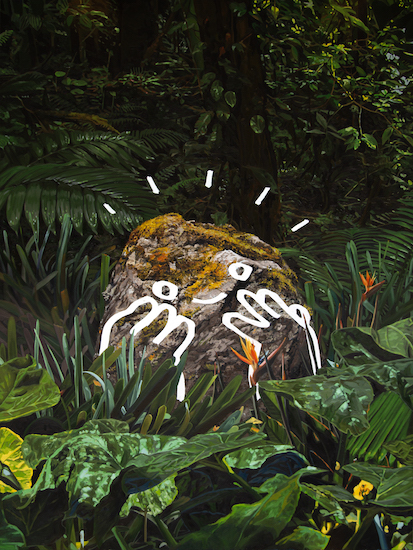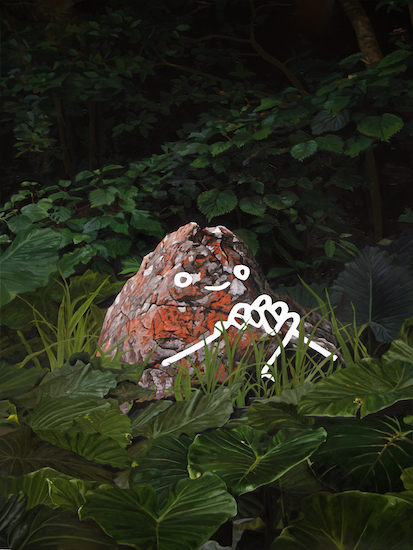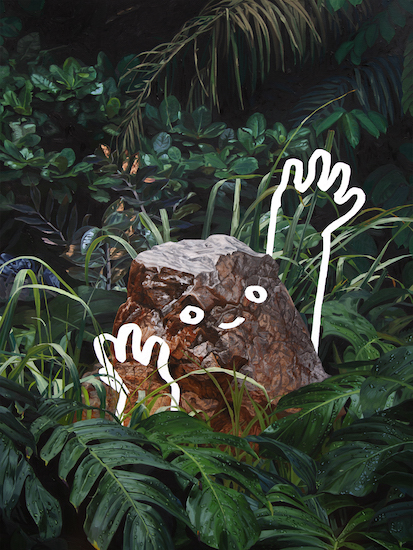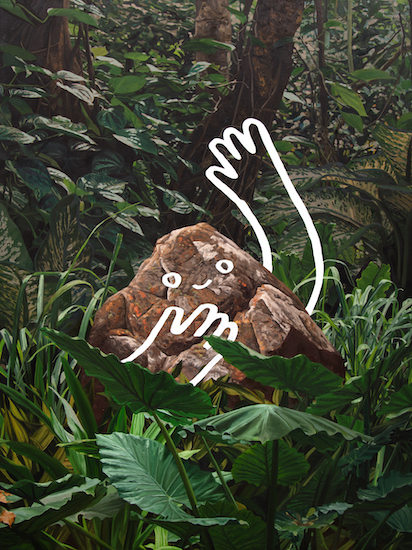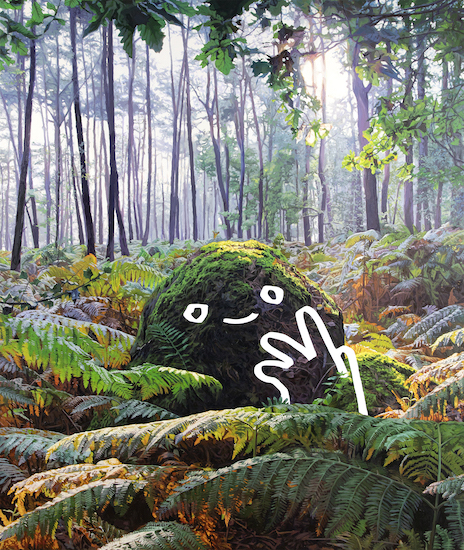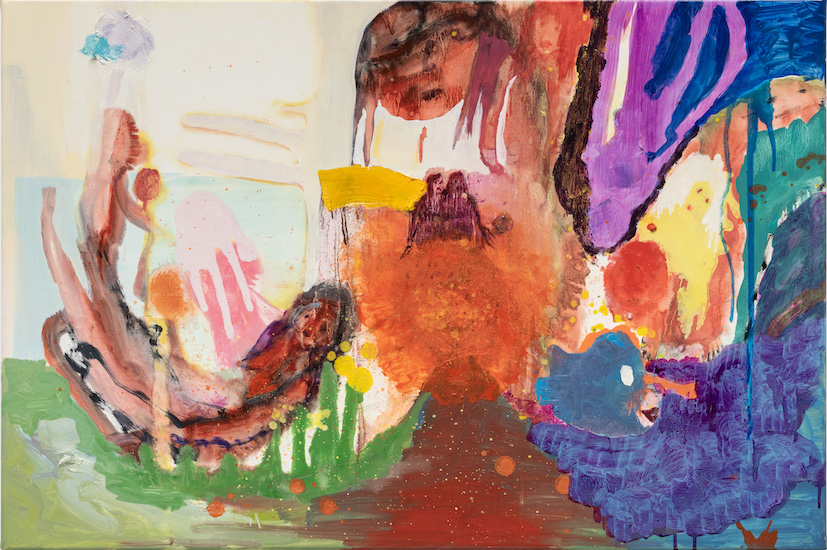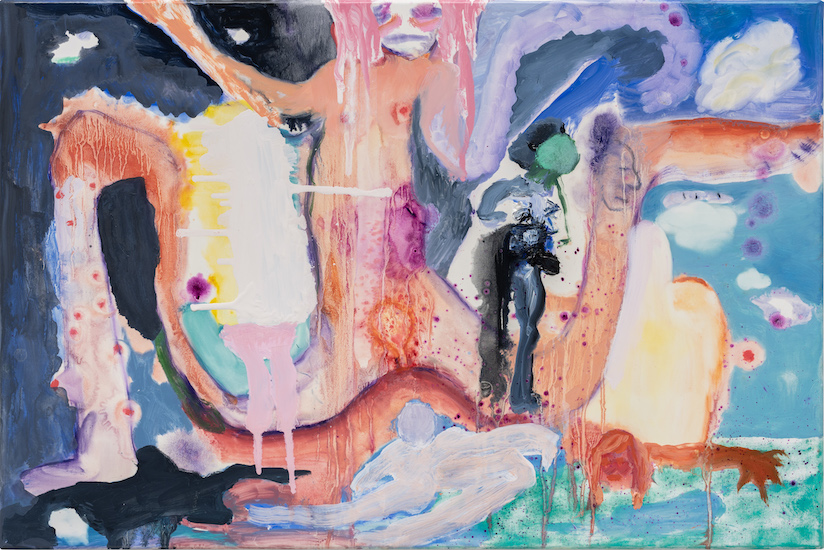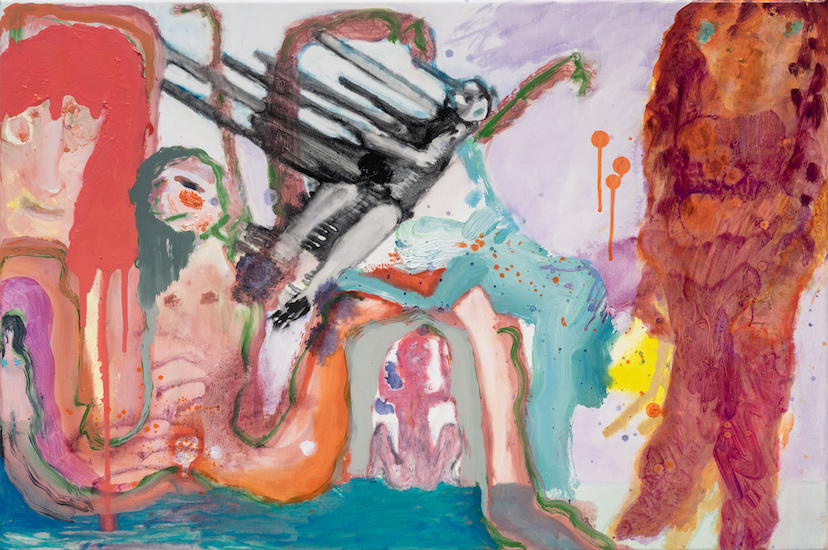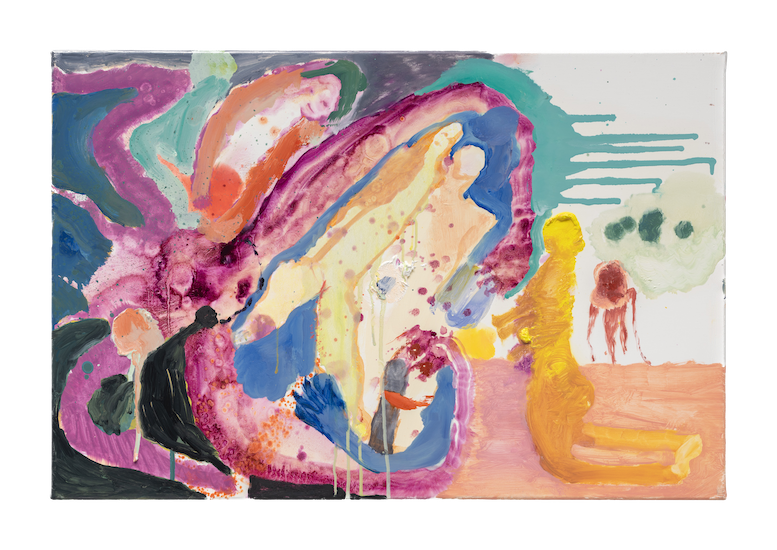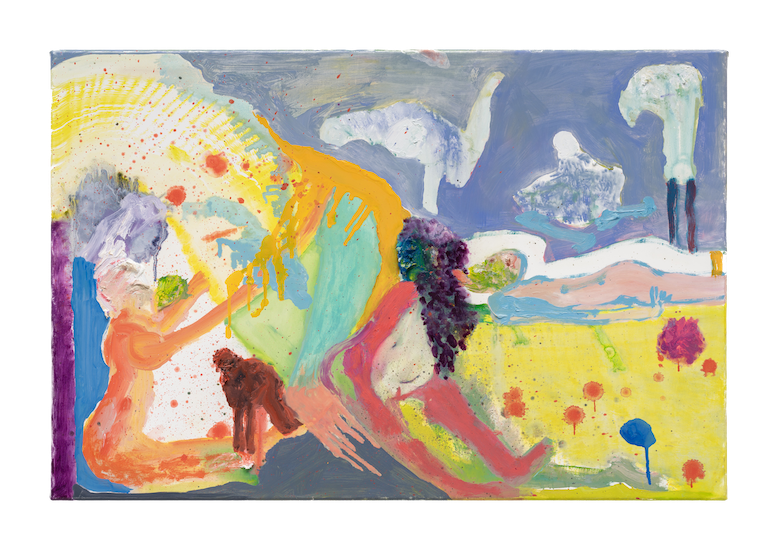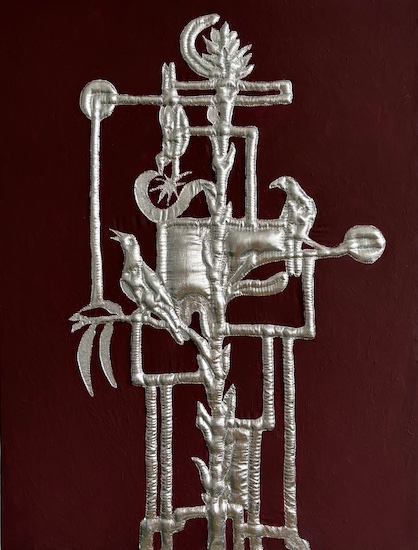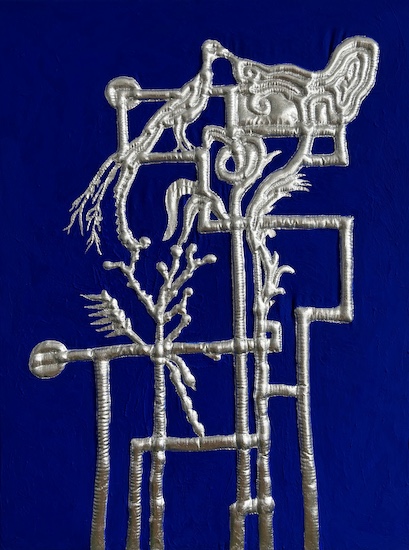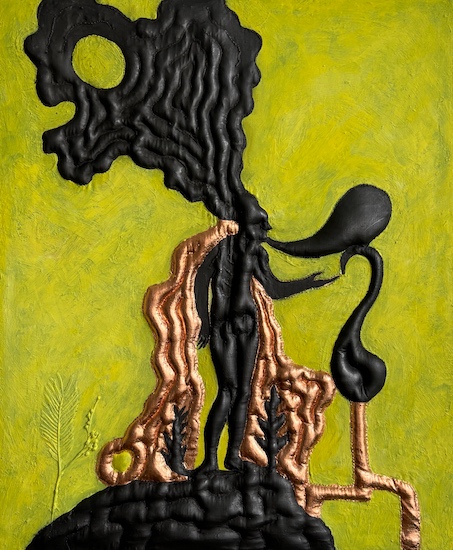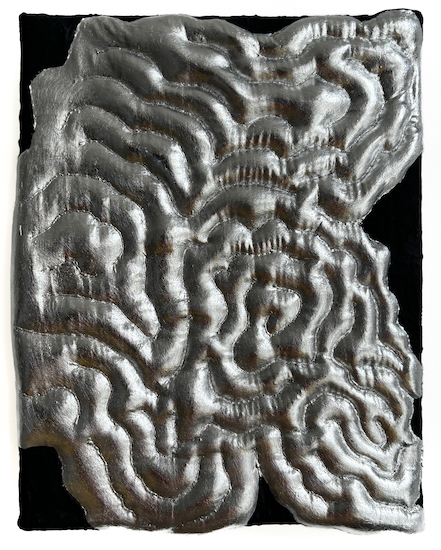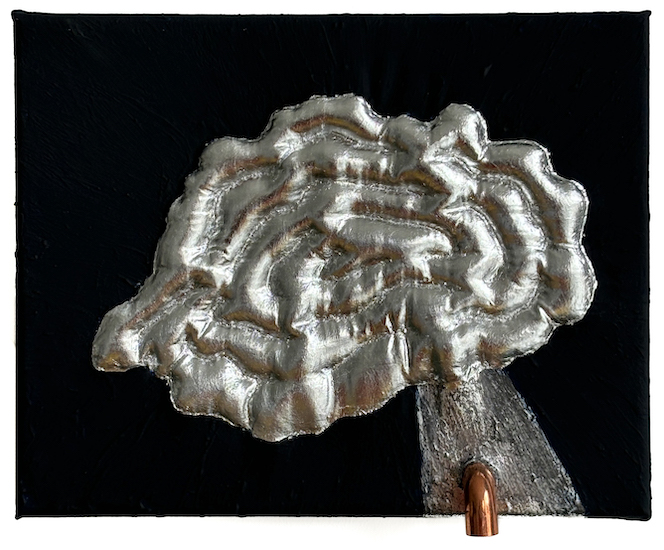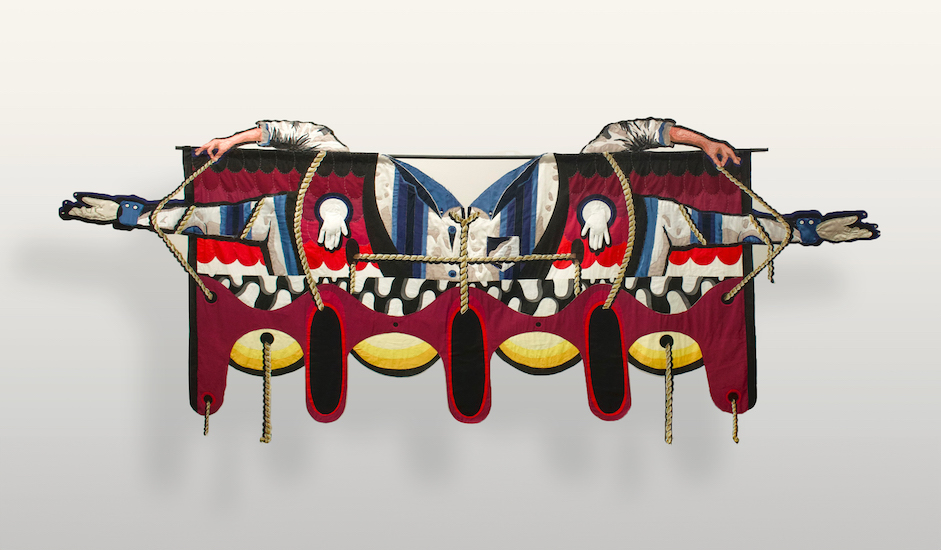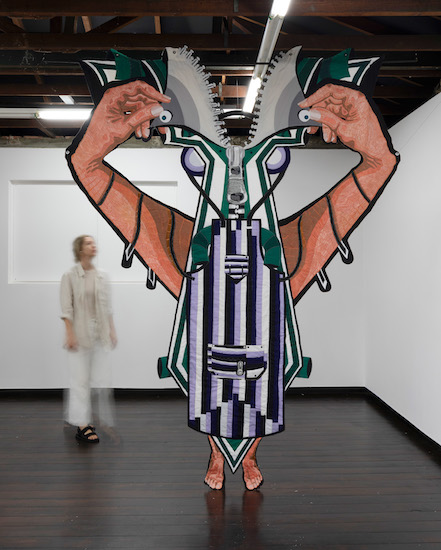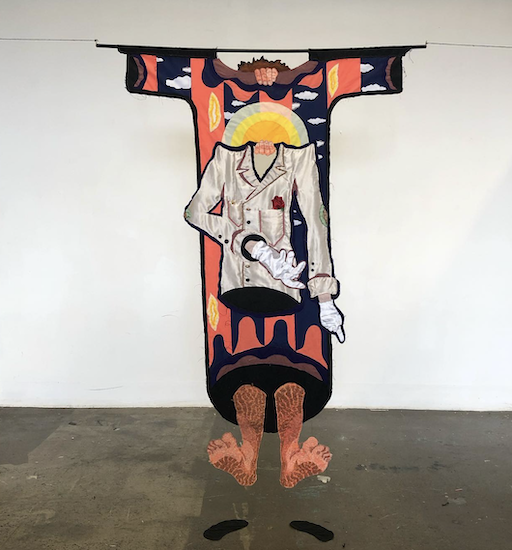Ames Yavuz is pleased to return to Art Brussels for its 40th edition with a showcase of leading Australian artists. Abdul Abdullah, Karen Black, Kate Bohunnis, Sarah Drinan, Charles Levi and Caroline Rothwell present new works that explore the dialogue between empowerment and constraint, grounded in their evocative negotiations of identity.
Abdul Abdullah’s irreverent paintings speak to his long-standing exploration of migration, displacement, and journeys. Rooted in his experience as a young Australian Muslim now based in Bangkok, his paintings greet and encourage those that wander new paths, embodying moments of joy, anxiety, and self-reflection.
Karen Black engages with the contradictions of desire, emotion and the self through paintings that transform traditional representations of the female body through abstraction. Raw, sensual compositions spring from her interest in radical care and vulnerability, depicting figures that emerge and recede into the depth and texture of the painted surface.
Kate Bohunnis’ new works delve into the cocooning nature of pleasure and intoxication, juxtaposing glassy organza with piercing steel to create portraits of control, rupture and seduction. The House of Sleep subverts material identities and deploys queer methodologies to embody a compulsive pleasure state through sites of force and disfigurement.
Sarah Drinan paintings embrace the absurdity of living in an often destabilising and perverted world, depicting fleshy bodies that merge and detach into ambiguous scenarios. First rendered and manipulated with digital media and 3D modelling apps, then translated into the glowing physicality of paint, her works consider labour and sex, anonymity and community, subjugation and empowerment.
Charles Levi’s practice reimagines the queer archive and the nuances of bodily labour through spectacular embroidered works. Using allegory, pop culture imagery and heraldic symbolism, his works are layered with gestures and codes that unfurl like complex flags, championing the experience of the queer subject across history.
Caroline Rothwell’s research-based practice dissects and reconstructs human interactions with nature, manipulating representations of living anatomies alongside gleaming industrial forms. Alluding to the skeletal, respiratory and weather systems, what may at first appear to be playful are decoys for more unsettling climate concerns.
